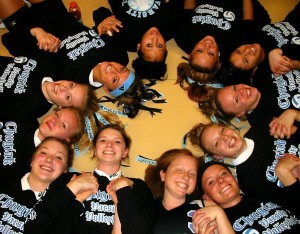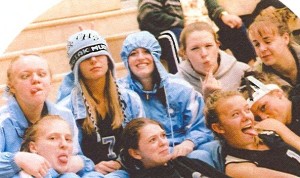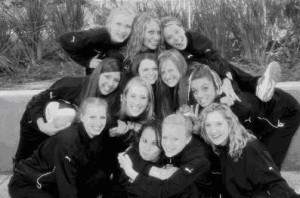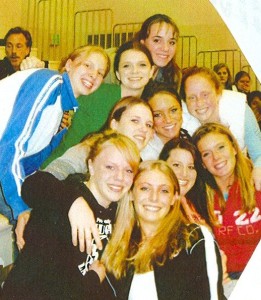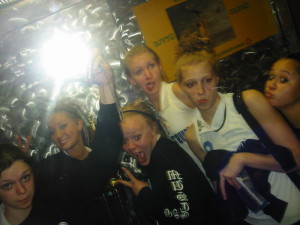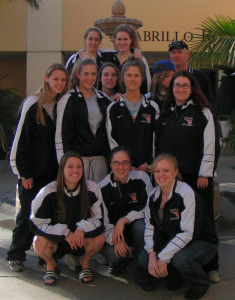I’ve written before about how a big part of my running inspiration is my mom. She was the marathoner, the mountain climber, the skier and the outdoors woman who brought me along on her adventures so that I would learn an appreciation for the things she loved. She taught me a lot about endurance and finding that little bit extra deep down to keep going.
My mom played a big role in my development as an athlete, but I didn’t realize most of it until I was an adult.
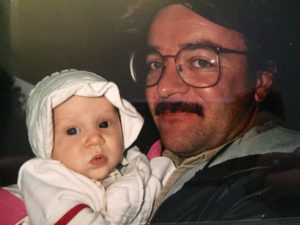 But this post is actually about my dad. Father’s Day is this weekend, and it seemed like a perfect time to reflect on everything he has taught me.
But this post is actually about my dad. Father’s Day is this weekend, and it seemed like a perfect time to reflect on everything he has taught me.
He was my first coach – putting a basketball in my hands for the first time. Buying me a hoop so I could practice lay-ups and free throws in my driveway. Volunteering to coach every team I played on until I was 12.
 Each high school game I played, I knew where I could find him: sitting in the top row of the bleachers, watching, taking it all in. After the game, he’d have feedback – and even when I was upset with myself or didn’t want to hear his critique, he was patient with me. I always knew he was right, I just didn’t always like admitting it.
Each high school game I played, I knew where I could find him: sitting in the top row of the bleachers, watching, taking it all in. After the game, he’d have feedback – and even when I was upset with myself or didn’t want to hear his critique, he was patient with me. I always knew he was right, I just didn’t always like admitting it.
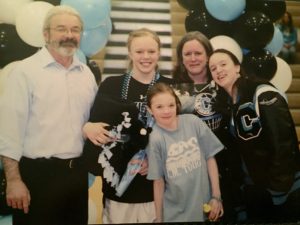
Before every game, he would give me a tip of the day. Anything from “block out” to “drive the lane” – his one tip was always something I did well to remember as I took the court. For an away tournament, he gave me a note card with tips of the day on it so that I could have his advice with me even when he couldn’t be there to watch.
When I went to play basketball in college, that notecard came with me, and lived in my gym bag. It traveled to every game even though my dad couldn’t. My dad would call or text those tips of the day before each game, too, so that I was never without my first coach.

I still have this notecard… it lives in my desk at work and it’s still useful. “Head up” is just good life advice.
Playing basketball taught me more lessons than I could enumerate. About leadership, about working as a team, about repetition and working hard and not giving in. All practical on the court, but even more applicable to life. Lessons I wouldn’t have learned as well if my dad hadn’t fostered my growth as an athlete for all those years.
His guiding hand has always been there for me, helping me navigate sticky situations, like teaching me how to deal with my 401K. My dad is the king of planning and lists and I absolutely picked that trait up from him, too. He’s goofy (see Exhibit A), he’s funny, he knows more sports trivia than anyone I know. But more importantly, my dad CARES. He cares for his family and for his friends. His heart is big and he goes miles beyond for someone in need. Literal miles. He has traveled halfway across the country on multiple occasions to help family through heavy and trying times. My dad has taught me more about what it means to be a good and kind human being than anyone else, because he lives it. Every day.
I know many people for whom Father’s Day is not a day of celebration – their fathers have been lost to them for some reason or another. On this day, I wish them peace and send them love – I can’t take away the pain or sadness they feel.

But I’m extraordinarily grateful to be able to celebrate my dad, because I’m extraordinarily grateful that my life has him in it. He is one of the best things about who I am. And he’s still giving me tips of the day.


